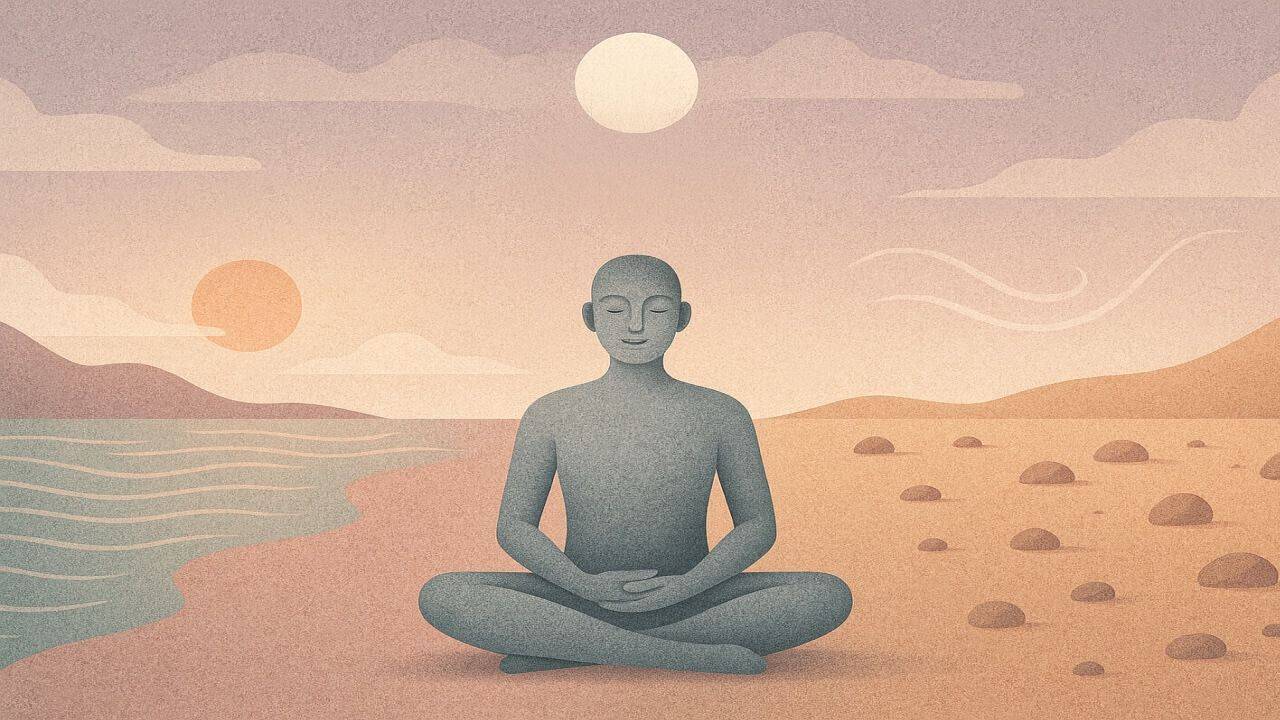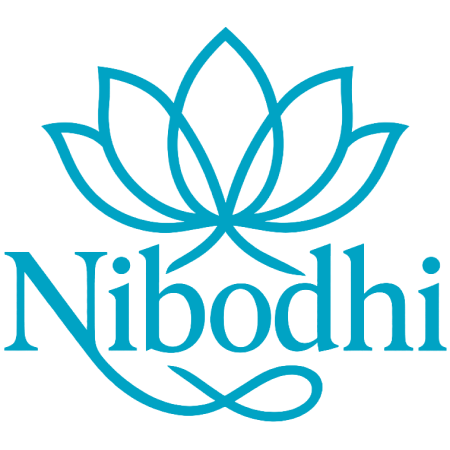Unlock mental balance with Ayurvedic psychology

This post is for general informational purposes only and may include affiliate links. It is not intended as medical advice. We may earn a commission through qualifying purchases. Read the full disclaimer.
Why Ayurvedic psychology matters in today's world
Ayurvedic psychology, or Manas Shastra, offers a profound framework for understanding the mind, emotions, and consciousness from a holistic, time-tested perspective. Rooted in the ancient Vedic tradition, it teaches that mental health is a delicate interplay between physical balance, subtle energies, and universal laws.
Unlike modern psychology, which often focuses on behaviors or neurology alone, Ayurveda integrates body, mind, and soul into a seamless path toward mental harmony, emotional resilience, and spiritual clarity.
The mind as a bridge between body and soul
In Ayurvedic psychology, the mind is described as an integral connection between the body, the soul, and the universe. Everything you experience through your senses is filtered through this mediator called Manas, the mind, which receives, processes, and reacts to the world around you.
What sets this system apart is its view of the mind as both cognitive (Jnana) and volitional (Cheshta). It serves both as a processor of information and as a source of motivation and direction. And while modern neuroscience is starting to recognize the influence of thoughts and emotions on physical health, Ayurveda has been saying this for thousands of years. Your thoughts affect your cells. Your emotions leave imprints. Your mind determines how your body reacts, heals, and thrives.
The real beauty of Ayurvedic psychology is how it recognizes mental disturbances not as isolated issues but as reflections of deeper energetic imbalances. These imbalances can be physical, emotional, or even karmic in nature.
Understanding the three gunas for mental clarity
The mind is governed by three fundamental qualities, or gunas:
- Sattva – Clarity and balance
- Rajas – Activity and passion
- Tamas – Inertia and ignorance
Sattva is the state we aim to cultivate. It brings peace, wisdom, and harmony. Rajas, when balanced, provides the energy to act, but when it dominates, it brings restlessness and anxiety. Tamas offers rest and grounding, but in excess, it leads to confusion, lethargy, and depression.
The gunas interact continuously with the three doshas of the body and create an ongoing relationship between mental qualities and physical constitution: Vata, Pitta, and Kapha. Just as the doshas affect our physical constitution, their imbalances affect our minds in predictable ways. For instance, Vata out of balance leads to anxiety, Pitta to anger, and Kapha to depression.
How dosha imbalances affect the mind
Understanding your predominant dosha and the state of your gunas can offer powerful insight into your mental patterns. More importantly, it can help you identify what might be pulling you out of balance. Whether it's a poor diet, lack of sleep, excessive stimulation, or unresolved emotion, Ayurvedic psychology sees all of these as contributors to mental discord.
- Vata imbalance – Anxiety, nervousness, insomnia
- Pitta imbalance – Irritability, impatience, anger
- Kapha imbalance – Lethargy, sadness, depression
The causes may be external (stressful environments, trauma, improper sensory input) or internal (unprocessed emotions, erratic routines, karmic patterns). But the solution always starts with awareness and rebalancing.
Why agni is key to mental health
Agni, the digestive fire, processes not only food but also thoughts, emotions, and experiences. A steady and balanced agni contributes to mental clarity and emotional steadiness. Various influences such as stress, trauma, or irregular habits may disrupt this process, allowing undigested impressions to accumulate and affect both the body and mind.
Strengthening agni is one of the most effective ways to restore mental health. This includes nourishing the body with appropriate foods and being intentional about sensory and emotional influences. Agni is supported through regularity, simplicity, and mindfulness.
Tools to promote mental balance with Ayurveda
Ayurvedic psychology provides a wealth of tools to promote sattva and support healing. These are time-tested practices that can easily integrate into modern life.
- Cognitive training – Replace negative thought patterns with constructive ones
- Mindfulness – Cultivate awareness without judgment
- Self-inquiry and journaling – Reflect on emotional triggers and patterns
- Meditation and mantra – Calm the nervous system and enhance clarity
- Behavioral routines – Create stability through daily rhythms
Each of these methods is designed to strengthen self-awareness, helping you respond to life from a centered, grounded place rather than reacting from imbalance.
Ayurvedic herbs and diet for emotional wellness
Ayurveda offers specific herbs and dietary guidelines to support mental wellness. These herbal supports are viewed as energetic companions that work in harmony with the body and mind.
- Brahmi – Improves memory and reduces stress
- Ashwagandha – Calms the nervous system and supports resilience
- Jatamansi – Aids sleep and emotional healing
- Shankhpushpi – Enhances cognition and emotional stability
A sattvic diet, rich in fresh, seasonal, plant-based foods, also plays a major role. Eating with intention and mindfulness is considered a core practice for mental clarity. The wrong foods, eaten at the wrong times, under stress or distraction, can undo even the best spiritual practices.
Daily habits to ground the mind and body
Ayurveda emphasizes dinacharya which refers to daily routines that align with natural rhythms. Morning and evening rituals are especially powerful:
- Wake before sunrise – Aligns you with nature’s cycles
- Meditate or pray – Grounds your awareness
- Oil pulling and tongue scraping – Clears toxins and enhances clarity
- Warm oil massage – Calms the nervous system
- Mindful meals – Eat in a calm, undistracted environment
- Evening wind-down – Turn off screens, reflect, and rest
These simple actions, when done consistently, create a profound sense of order and peace within.
How Ayurveda supports modern mental health care
Ayurvedic psychology works in collaboration with modern mental health practices and offers an additional perspective grounded in holistic tradition. Combining mindfulness therapy, psychotherapy, and modern neuroscience with Ayurvedic routines, herbs, and yogic practices creates a full-spectrum path to healing.
This integrative approach allows us to honor both the wisdom of the ancients and the insights of modern science. This process supports both immediate concerns and deeper contributing factors.
A return to self through Ayurvedic psychology
Ayurvedic psychology views mental wellbeing as a continuous process of connection and awareness. It is a relationship with your thoughts, your habits, your body, and your soul. It is the journey back to sattva, the pure and unmodified state of being where clarity and peace reside.
In a world that's increasingly fast-paced, overstimulated, and disconnected from nature, this ancient wisdom invites us to slow down, tune in, and realign. It encourages us to make space for silence, for self-inquiry, for sacred rhythms that nourish the soul.
And ultimately, it teaches us that health reflects a state of harmony within the entire being. When the mind is in balance, the heart is open. And when the heart is open, love becomes the guiding force in all we do.
What I use and love
Want to know what I recommend for a healthier, happier life? Every product on Nibodhi’s Favorites is something I personally use, trust, and love. Take a look at my go-to wellness picks.
Join my free newsletter
Get quick daily wins, health insights, and science-backed wisdom for a healthier, calmer, and more radiant life. 5 New tips Every Thursday.

